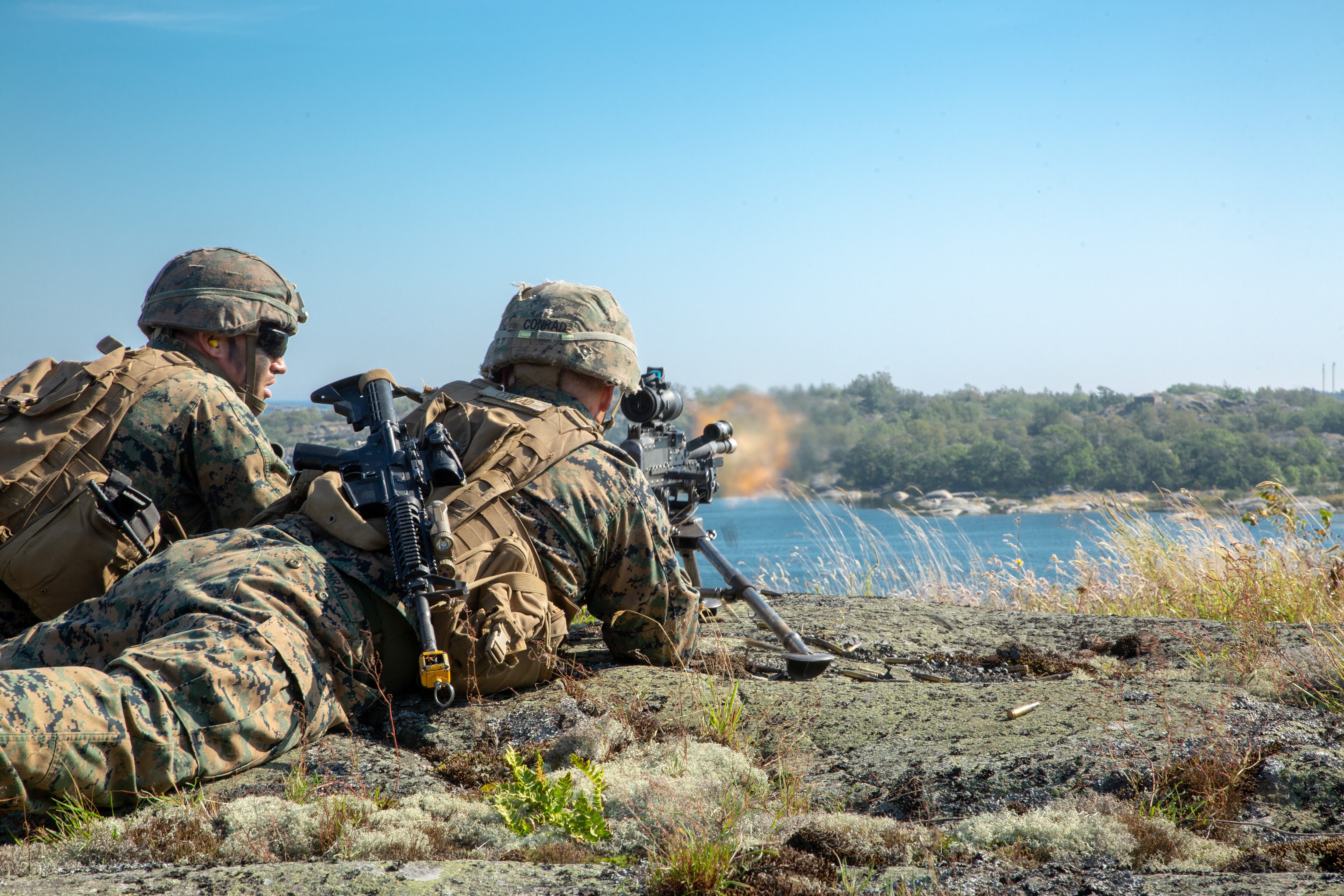MARINE CORPS BASE QUANTICO, Va. – As the Marine Corps and its sister services shift focus to near peer battles and the range of ways to meet that fight, some experts think they may be losing sight of ways in which other threats could emerge both separate from peers and from them through other means.
A panel of national security experts at the annual Modern Day Marine Military Expo here acknowledged that both China and Russia do pose different threats to U.S. interests than they did in the past but the wide swing to meet those perceived threats may miss other dangers.
“I see some fairly exaggerated claims as to what those two countries can do,” said retired Marine Col. J.D. Williams, with RAND Corp.
Williams pointed to the drumbeat of speakers and conversations at various defense events in recent years saying that the United States has “fallen behind” Russia and China. In some areas those adversaries have made strides, but in many others the U.S. holds substantial overmatch.
RELATED

The retired colonel recalled conversations with Marine leaders who have told him that if a program director can’t justify what their program contributes to great power competition, as outlined in Commandant Gen. David Berger’s recently released planning guidance, then it’s not likely to get funded.
“Well, there are other things out there,” Williams said.
And even if the Marines and other services gear up conventional capabilities, from farther shooting artillery to hypersonic rockets and tailored missile defense, they could still face unforeseen, irregular threats that can’t be responded to with those systems, said Nora Bensahel, senior fellow, Philip Merrill Center for Strategic Studies at Johns Hopkins University.
“What if warfare doesn’t involve the military anymore?” she said.
She and other panelists pointed to gray zone, or beneath armed conflict, type of engagements. Those may require other entities but still must been in the sight picture of the Marine Corps as their roaming the world’s maritime environments.
Panelist David Knoll, with CNA, a nonprofit research and analysis organization, dove a little deeper on how the Marines must understand the irregular warfare threat, even if they’re not the lead.
“But that doesn’t mean the Marine Corps is always the right entity to respond to it,” Knoll said. “They have to understand it but perhaps another partner, ally or government agency will respond to it.”
The rise of hybrid warfare doesn’t fit the military definition of conflict but it is distinct from peacetime competition between adversaries, she said.
Bensahel pointed to China’s use of commercial ships in the South China Sea to achieve its aims, Russia’s use of non-uniformed soldiers and military contractors in Ukraine. And more advanced arenas present other problems such as space and cyber.
“We don’t know what an actual conflict in space, taking out space capabilities, would be like,” she said. “The same thing is true of cyber.”
Williams pointed to a historic example to show that even with a near peer, the Marine Corps’ contribution has varied widely from what leaders thought it might be.
In the 1980s the 4th Marine Amphibious Brigade optimized to fight in the high north against Russia, creating stockpiles in Norway and going heavy with armor, launching combined arms exercises at Twentynine Palms, California.
While that work may have seemed paramount to fight the Soviet Union, the real value that the Marines provided in the 1980s and 1990s came from its work in maneuver warfare, the Marine Expeditionary Unit Special Operations Capable concept and its use of maritime prepositioning stocks for expeditionary response across the globe.
“Don’t underestimate the irregular warfare threat,” Knoll said. “There’s a huge desire to run from the last 18 years of warfare. And services will procure for the high end fight.”
But, he said, the United States needs to think about how adversaries will support and use those irregular warfare concepts to counter us.
Todd South has written about crime, courts, government and the military for multiple publications since 2004 and was named a 2014 Pulitzer finalist for a co-written project on witness intimidation. Todd is a Marine veteran of the Iraq War.








